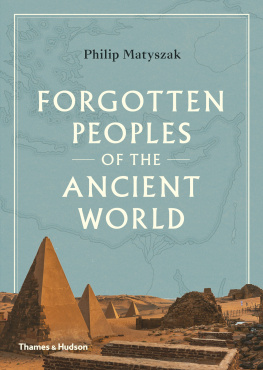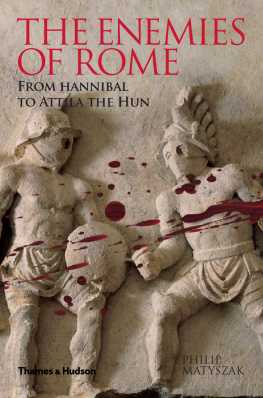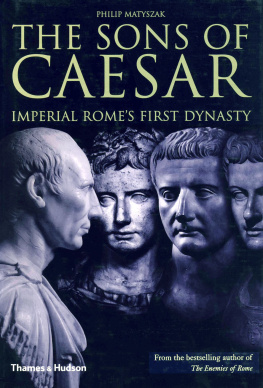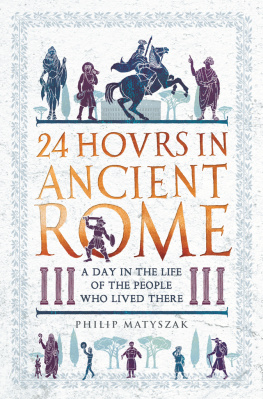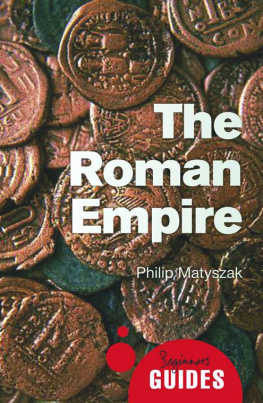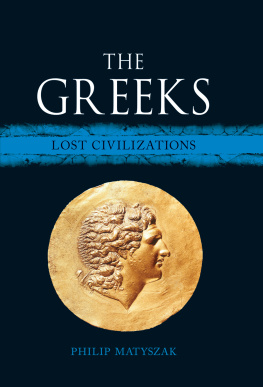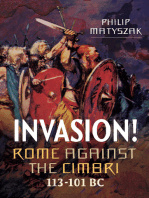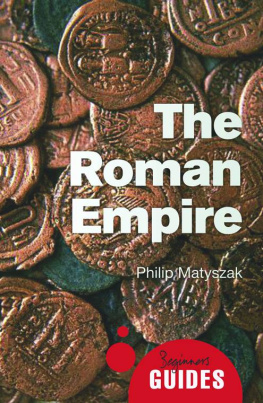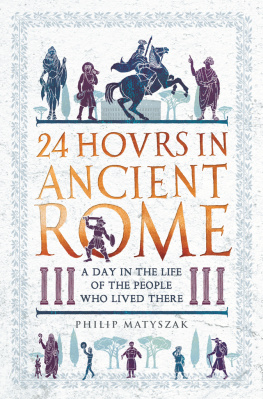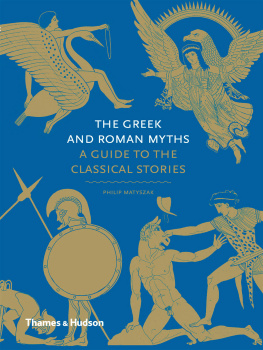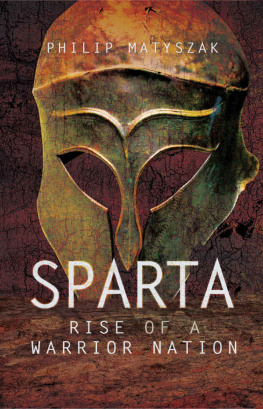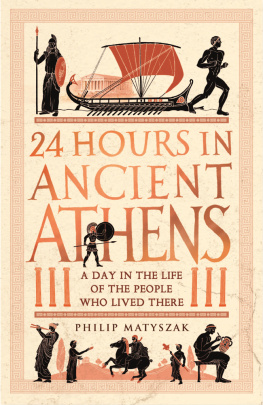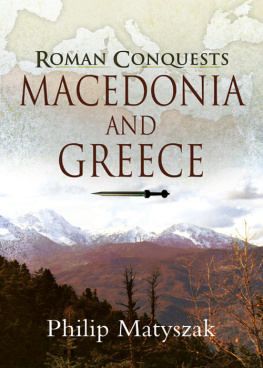Philip Matyszak - Forgotten Peoples of the Ancient World
Here you can read online Philip Matyszak - Forgotten Peoples of the Ancient World full text of the book (entire story) in english for free. Download pdf and epub, get meaning, cover and reviews about this ebook. year: 2020, publisher: Thames & Hudson, genre: History. Description of the work, (preface) as well as reviews are available. Best literature library LitArk.com created for fans of good reading and offers a wide selection of genres:
Romance novel
Science fiction
Adventure
Detective
Science
History
Home and family
Prose
Art
Politics
Computer
Non-fiction
Religion
Business
Children
Humor
Choose a favorite category and find really read worthwhile books. Enjoy immersion in the world of imagination, feel the emotions of the characters or learn something new for yourself, make an fascinating discovery.
- Book:Forgotten Peoples of the Ancient World
- Author:
- Publisher:Thames & Hudson
- Genre:
- Year:2020
- Rating:5 / 5
- Favourites:Add to favourites
- Your mark:
- 100
- 1
- 2
- 3
- 4
- 5
Forgotten Peoples of the Ancient World: summary, description and annotation
We offer to read an annotation, description, summary or preface (depends on what the author of the book "Forgotten Peoples of the Ancient World" wrote himself). If you haven't found the necessary information about the book — write in the comments, we will try to find it.
Forgotten Peoples of the Ancient World — read online for free the complete book (whole text) full work
Below is the text of the book, divided by pages. System saving the place of the last page read, allows you to conveniently read the book "Forgotten Peoples of the Ancient World" online for free, without having to search again every time where you left off. Put a bookmark, and you can go to the page where you finished reading at any time.
Font size:
Interval:
Bookmark:


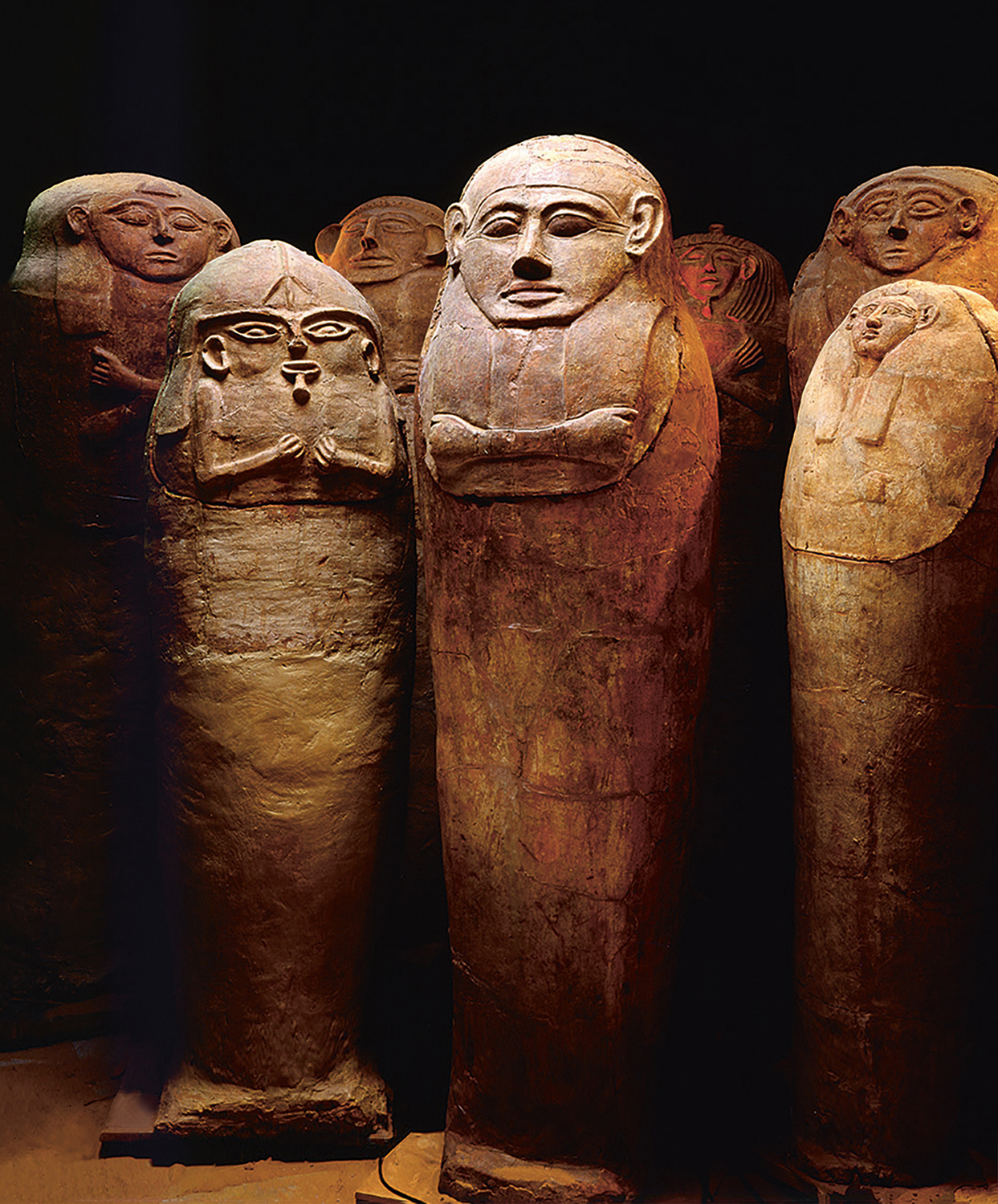
Anthropoid sarcophagi from the cemetery at Deir el-Balah, Late Canaanite period, thirteenthfourteenth century BC.
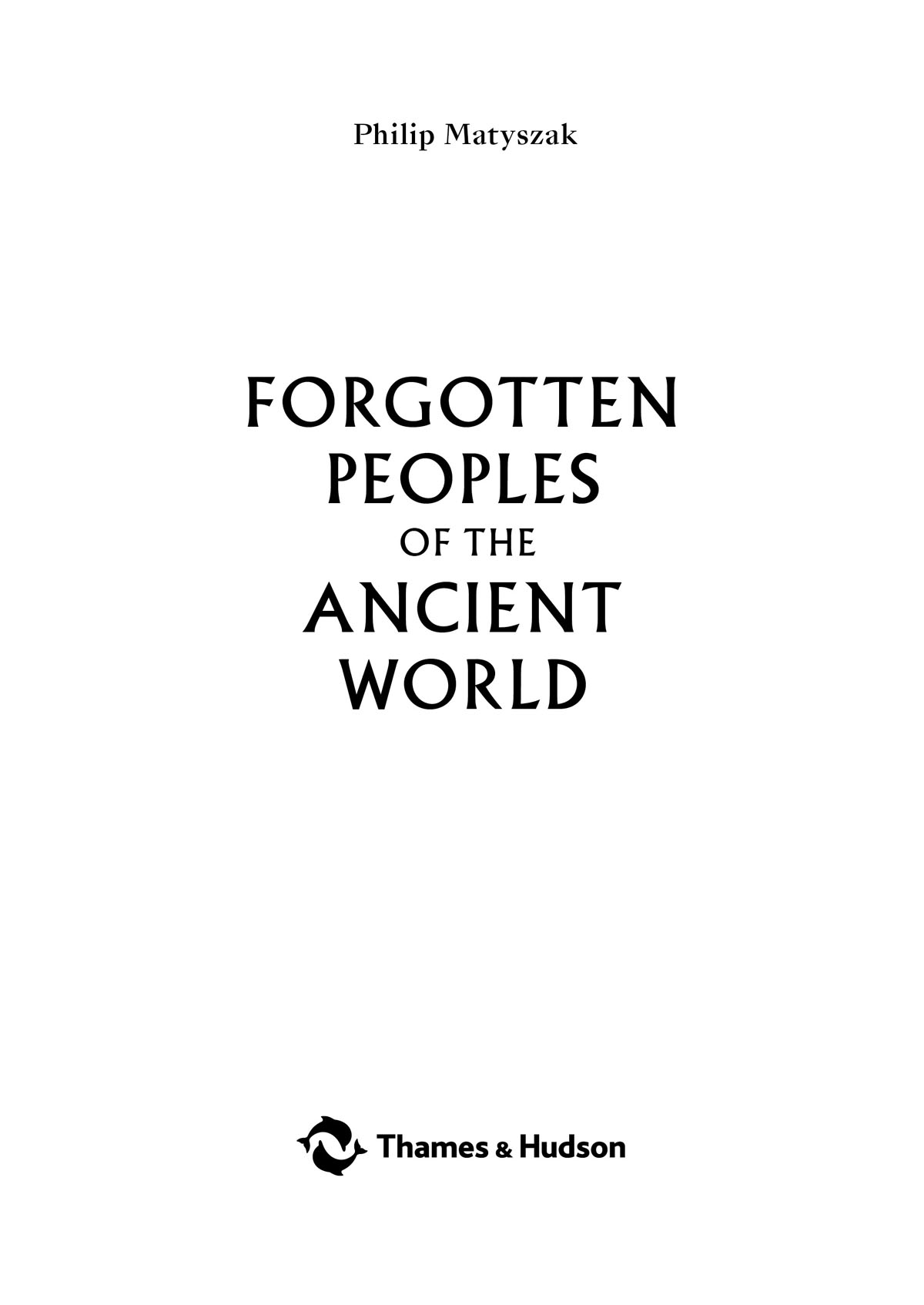
Philip Matyszak has a doctorate in Roman history from St Johns College, Oxford. He is the author of many bestselling books on Classical civilization, including The Greek and Roman Myths, Ancient Magic, Chronicle of the Roman Republic, The Enemies of Rome, The Sons of Caesar, Ancient Rome on Five Denarii a Day, Ancient Athens on Five Drachmas a Day and Legionary, all published by Thames & Hudson.
Other titles of interest published by
Thames & Hudson include:
Ancient Magic
Cities That Shaped the Ancient World
Great Cities Through Travellers Eyes
Silk Roads
See our websites
www.thamesandhudson.com
www.thamesandhudsonusa.com
27001200 BC
1200323 BC
753 BCAD 235
AD 235550
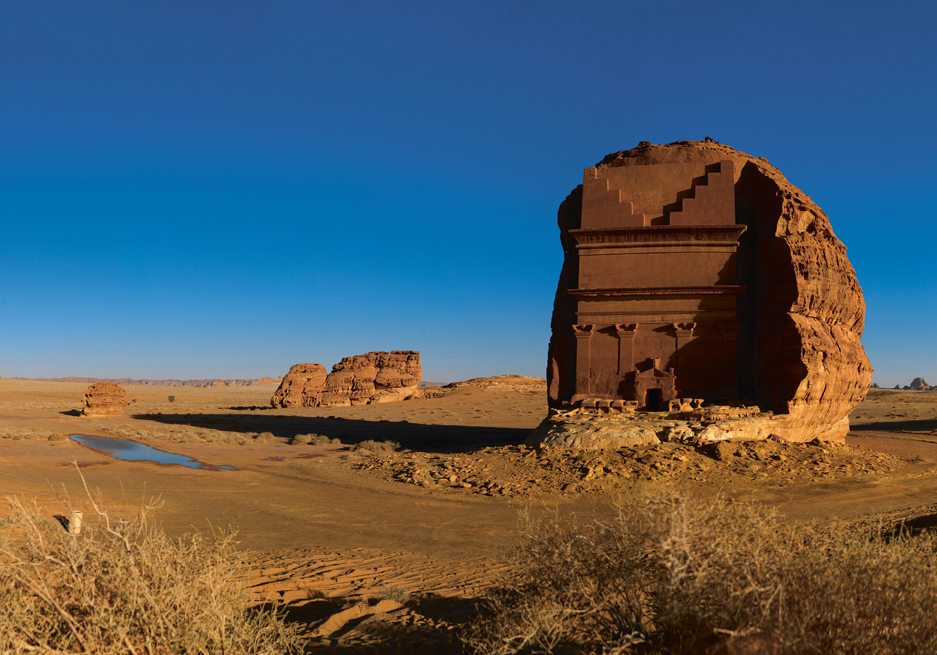
Madain Saleh in Saudi Arabia was the second largest Nabataean settlement after Petra, and includes this monumental tomb carved from a rock outcrop.
They are called the mists of time for a reason. Both as individuals and as a culture we only really take notice of people and events close to our own era. In 2013, Time magazine compiled a list of the 100 most significant figures in history. Around 40 per cent of those on the list had lived in the last 150 years, and the majority of the rest in the past 500. Sargon the Great of Akkad, founder of the worlds first empire (r. c. 23342279 BC), was not considered sufficiently significant to qualify. On the other hand, the 22nd (and 24th) US President, Grover Cleveland, who died in 1908, did make the list. The further away other people are from us in space and time, it seems, the less they impinge on our consciousness.
It is not just personalities but entire ancient peoples who have faded from our collective memory. While it is true that some of the more significant forms are visible in the mists the Romans, the Assyrians and the Egyptians are unlikely soon to vanish from view other peoples and tribes who rocked civilizations and changed the ethnic pattern of humanity are now only dimly recalled, even when they are remembered at all. Some once great peoples have altogether disappeared except as names to intrigue ethnographers and archaeologists: the Luwians, Orniaci and hundreds of others.
More intriguing are those peoples whom we still glimpse occasionally, who have survived through some quirk of language or culture. Today we think we know the Aborigines, yet the first Aborigines were believed to have lived in central Italy, as described by the historian Dionysius of Halicarnassus. It seemed to the Romans that this ancient tribe had been there forever; consequently, by the modern era, the word Aboriginal has come to describe the native inhabitants of a place, even if that place is somewhere far distant from the original Aborigines.
This book is about such peoples who, though largely forgotten, have directly or indirectly affected us today. Or they are peoples about whom we remember just one thing while the rest is lost. What do we know of the Bactrians, apart from their two-humped camels? Or of the Samaritans, other than that one of them was good? We call an uncultured lout a Philistine, but were the Philistines philistines, and come to that, were the Vandals vandals?
There are very many such peoples, and to describe them all is beyond the scope of this single book, which is concerned with the lost peoples of one region of the ancient world. It is intended to give a picture of the busy, brawling, multicultural mass of humanity which occupied the ancient Middle East, Mediterranean and parts of Europe. One purpose of gathering together these obscure peoples is to remind ourselves that civilization is a collective human project. It is not the great civilizations alone that made our modern world.
Egypt, Babylonia and Assyria dominate the pre-Classical era, just as the Hebrews, Romans and Greeks crowd others out of sight in the centuries that followed. Yet none of these great civilizations would have taken shape without the contributions, major and minor, of the peoples who lived on their peripheries. The Phrygians contributed, as did the Chaldeans and the Epirots and without these peoples we would not have, respectively, the Liberty cap of the French revolutionaries, idiomatic feet of clay or Pyrrhic victories.
In a way, the story of these different, often idiosyncratic, forgotten peoples is the story of Western civilization from a different perspective. Instead of looking at later Classical history as a narrative of the expanding power of Rome, this book examines what that expansion meant for peoples such as the Celtiberians or Nabataeans for whom Rome brought at best radical cultural change and, at worst, extinction. Yet even as they faded, these peoples influenced their conquerors, so that the Rome of late antiquity was far different from the Rome of the early Republic.
Over the centuries the focus of this text moves westwards, from the worlds first city, Uruk, by the River Euphrates, in ancient Sumeria, to the tribal heartlands of the Iceni in the Fens of eastern Britain. This is not because civilization also moved west Babylonia and Egypt managed to remain a lot more civilized than Britain throughout the ancient era. But civilization certainly expanded westwards, and a large part of our story comes from how peoples and cultures already established in the west coped with that expansion.
Note: The dates given for each people are approximations which indicate the main period during which these peoples or civilizations were present on the stage of history. While in some cases any given date might be open to debate, the times or periods chosen are mostly based either on known significant events (such as decisive battles) or on the first or last mentions in ancient sources. The Oxford Classical Dictionary, edited by Simon Hornblower and Antony Spawforth (4th ed., 2012), and other Oxford resources have been used as a reference point wherever possible.
The First Empire Builders
Founders of Babylon
Israel Before the Israelites
The Empire Before Persia
Masters of Anatolia
Invaders of Egypt
Riders of the Storm
What exactly is civilization? Essentially its where we find large-scale societies, often cities and states organized hierarchically, with rulers (usually together with priests and a warrior caste) controlling labourers and craftsmen to direct the flow of wealth, establishing inequality. Civilization is certainly about decent roads and sewers, but it is also about taxation and social order, advances in technology critically weaponry and, more often than not, the moving of lesser peoples out of the way of progress.
Font size:
Interval:
Bookmark:
Similar books «Forgotten Peoples of the Ancient World»
Look at similar books to Forgotten Peoples of the Ancient World. We have selected literature similar in name and meaning in the hope of providing readers with more options to find new, interesting, not yet read works.
Discussion, reviews of the book Forgotten Peoples of the Ancient World and just readers' own opinions. Leave your comments, write what you think about the work, its meaning or the main characters. Specify what exactly you liked and what you didn't like, and why you think so.

